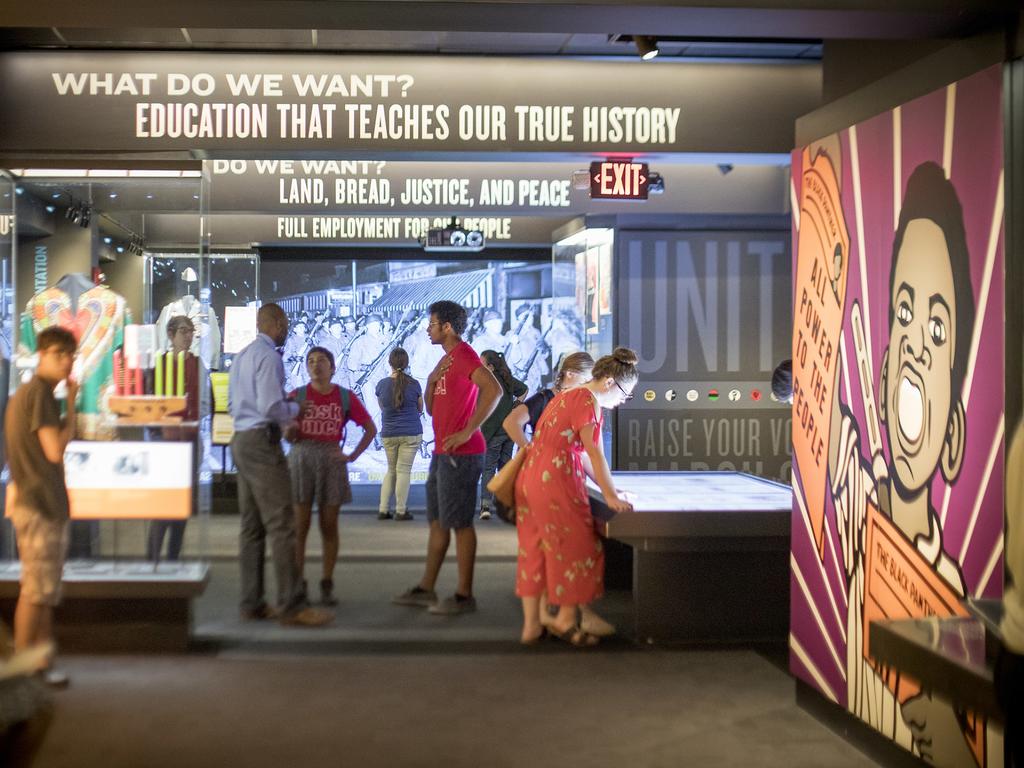Since 2003 when the Rhodes Vision was adopted, the college has intentionally integrated its academic programs with fellowships and internships tied to the local community. The public history internship program offered by the Department of History is one example of how students go beyond textbooks and connect with Memphis organizations.
Matt Hein ’15, Sam Bridger ’13, and Harrison Donahoe ’13, for example, researched material for the recently released Memphis Heritage Inc. publication Historic Properties In Memphis and Shelby County Listed on the National Register of Historic Places. According to the guide, which lists buildings, neighborhoods, districts, parks, and landmarks—including Rhodes College—Memphis is sixth in the nation for properties listed on the National Register behind Baltimore, Philadelphia, Boston, New Orleans, and Washington, DC.
“Working with Memphis Heritage was an excellent way to explore the non-profit world while also learning about Memphis history,” says Hein, who is currently employed by United Way of the Mid-South. “Researching the different historical properties was a unique way to learn about different periods of history and areas in Memphis.”
After photos were first taken for the guide in 2013, the Rhodes interns helped research each property’s history, construction date, architectural style, location, and so forth. In the last couple of years, Memphis Heritage staffers and other students and volunteers from the community completed the research and organized the material. Now, Memphis Heritage’s aim is to get the guide in the hands of public officials as well as civic and business leaders so that they will know about the many historic properties in their jurisdictions, as well as those surrounding them at work and home. Each listing also denotes their status as preserved, threatened, or endangered.
“Memphis Heritage is very fortunate to have had a long-standing relationship with Rhodes’ public history program,” says June West, Memphis Heritage’s executive director. “The program’s interns allows MHI to strengthen its research for community projects that assist not only the student but the entire community. We are very proud to play a role in their journey.”
Rowdy Kowalik ’19, a history major who aspires to become a civil liberties attorney, served as an intern in the operations department at the National Civil Rights Museum spring semester 2017. “I was actively engaged with my coworkers, visitors, and the museum itself to find ways in which we could make this critically important history more engaging and accessible to the public,” says Kowalik. “My duties ranged from updating the museum’s disability services and evacuation procedures to assisting in the development of a new ticket distribution system that would alleviate overcrowding. I was required to be hands-on at the site. This meant engaging with the exhibits in numerous different ways. It also meant working in nearly every customer service position within the organization. By working in the day-to-day functions of the museum, I was able to pinpoint exactly where issues arose and how we could improve them.”
Other Rhodes students with public history internships have worked at local institutions creating displays, digitizing one-of-a-kind archival material, giving tours, and making documentaries. Students interested in the internships work with Dr. Jeffrey Jackson, director of Rhodes’ concentration in public history, and the college’s career services office, which arranges interviews at internship sites. Available sites include the National Civil Rights Museum, Stax Museum of American Soul Music, Blues Foundation and Museum, Pink Palace Museum, Memphis and Shelby County Public Library, OutMemphis, Temple Israel, Victorian Village Community Development Corporation, and the Mississippi River Heritage Museum. “Public history helps students and members of the community understand that history matters,” says Jackson. “Public history empowers students and community members to talk about where we’ve come from and where we’re going as a society.”
In the fall of 2016, the Department of History began offering a concentration in public history, which grew out of the successful public history internship program. The concentration has been listed by the National Council on Public History as one among a growing number of public history programs across the United States.
Ruth Scott ’18, a history major from Leander, TX, worked as an intern for the curatorial department of Dixon Gallery & Gardens spring semester 2017. She compiled lists of paintings and researched community outreach presentations for a show on 19th century French bourgeois men.
“Working at the Dixon Gallery & Gardens not only taught me the entire process that a gallery has to go through in order to put on a show, but also caused me to realize how important it is to me to be at an organization that works so hard toward its mission,” says Scott. “I would definitely recommend a public history internship to other Rhodes students to see the intimate connection that Memphis has between its past and its present, and how the museums of the area facilitate that relationship.”
Kowalik adds that his internship taught him that history is more than just facts. “People from vastly different backgrounds often engage with history and the world quite differently from one another. By acknowledging this, not only in public history, but in every situation, I believe we have the potential to create more inclusive conversations, consequently producing more productive dialogue in our communities.”
The National Civil Rights Museum internship also provided him an up-close view of the challenges involved in running and operating a business. “I discovered that although you may have a great idea, there are often constraints that prevent these ideas from being effective or from ever happening at all. Thus, I learned that not only do your ideas need to be thoughtful, you must also be creative and persistent in the implementation process if you want to make an impact at your work or in your community.”
As a result of his experience at the museum, this semester Kowalik is working as an intern for Facing History and Ourselves, which empowers teachers and students to think critically about history and to understand the impact of their choices. “I am also looking forward to bringing the Facing History model to Rhodes.”
